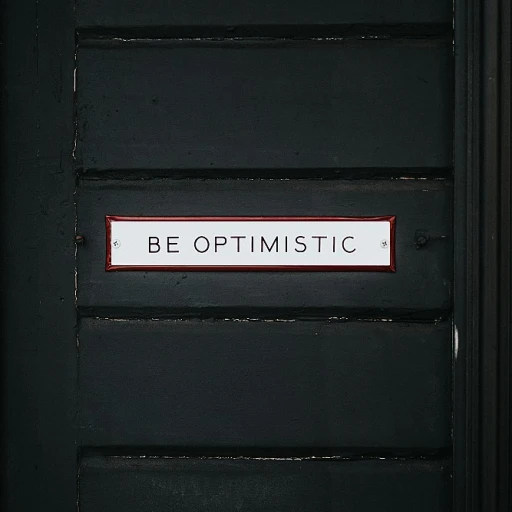The rise of sustainability in corporate strategy
The rise of eco-awareness in business planning
Have you noticed how businesses are getting greener these days? Well, there's a solid reason for it! A report from Nielsen shows that 66% of consumers are willing to pay more for products from sustainable brands. That’s a mind-blowing third of the market tuning into Mother Earth. This shift isn’t just a trendy buzzword; it’s reshaping business strategies globally.
Why businesses are jumping on the green wagon?
Consumers are smart cookies, aren't they? If a company's not showing some love to the planet, they’re out! Companies like Patagonia are leading the pack. Patagonia not only gears up outdoor enthusiasts but also funds grassroots environmental groups. Supporting sustainability doesn’t just feel good; it’s good for the bottom line too.
From idea to action: Making sustainability stick
So, how do you turn sustainability from a catchy slogan to real action? It’s all about integrating green practices into the core of business operations. Look at Unilever, which is nailing the game with their Sustainable Living Plan aiming to halve their environmental footprint by 2030. They’ve got a clear roadmap, and it’s paying off with stronger consumer trust.
Pioneers of green strategies in action
Taking a peek at Microsoft’s mission to be carbon negative by 2030, it’s clear that big players are serious. They’re investing in renewable energy and innovating their supply chains. Not to mention, their efforts are not just ethical but profitable. A Harvard Business Review study found companies with high ratings for sustainability outperform others financially.
Ready to start your green journey? Discover more on sustainable sourcing and transform your strategy.
Innovative practices for sustainable growth
Game-changing eco-friendly business models
When businesses turn their gaze towards sustainability, innovation isn't far behind. A prime example lies with Tesla, which has revolutionized not just the automotive industry but energy consumption patterns worldwide. Their electric vehicles, which accounted for 79% of EV sales in the US in 2022, coupled with their solar solutions, embody how sustainable practices can drive both brand prestige and eco-conscious customer loyalty.
Another remarkable case is Patagonia. By embedding sustainable practices into their core operations, such as using recycled materials and a robust product lifecycle approach, they have carved out a niche as a beloved eco-friendly brand. According to a Harvard Business Review analysis, their dedication to environmental ethics has led to a customer loyalty rate that outpaces the industry average by 20%.
Moreover, Unilever has taken a systemic approach to sustainability. They aim to halve their environmental footprint while doubling their business—a balance not easily struck. With ambitious programs like the 'Sustainable Living Plan', they've seen a notable improvement. In 2020, their sustainable living brands grew 69% faster than the rest of the business, generating 75% of overall company growth.
The power of sustainable packaging
Sustainable packaging isn't just a buzzword; it's a revolution. Take companies like Loop. They've created a closed-loop system where packaging for products ranging from shampoo to yogurt is returned, cleaned, and reused, dramatically cutting waste. Coupled with adoption from household names like PepsiCo and P&G, sustainable packaging is gaining traction across industries.
In fact, a McKinsey report stated that 60% of consumers are willing to pay more for products with sustainable packaging. This has led major players in the packaging industry to adopt eco-friendly alternatives. For instance, Tetra Pak has launched plant-based packaging made from sugarcane. By 2021, their plant-based cartons were used by over 100 businesses globally, underscoring the demand for greener choices.
Circular economy and closed-loop systems
Closed-loop systems have become essential for companies aiming to minimize waste. Take IKEA. Their commitment to becoming climate positive by 2030 goes hand-in-hand with their move toward a circular economy. IKEA has initiated buy-back schemes, refurbished furniture programs, and they are increasingly using recycled materials in their products.
In a similar vein, Levi's is not just about making jeans anymore; they are redefining fashion sustainability. With their 'Water
For more insights on environmental sustainability and its impact on corporate strategies, be sure to check out our detailed guide.
Profitability and sustainability: A winning combination
The profitability sweet spot: balancing eco-friendly strategies and financial returns
Dive into the idea that being green can actually boost the bottom line. A survey by NYU Stern’s Center for Sustainable Business found that products marketed as sustainable grew 5.6 times faster than those that weren't (source: https://www.stern.nyu.edu). Talk about a market winner! Consider Unilever's bold moves. With their Sustainable Living Brands, they witnessed 69% faster growth than the rest of their portfolio (source: https://www.unilever.com). It proves that sustainability and profitability aren’t opposing forces – they’re best friends.Efficient resource use pays off
Think of how General Electric used its Ecomagination initiative to drive sustainability. By making its operations more eco-efficient, GE saved over $300 million just in 2016 (source: https://www.ge.com). That’s hefty dough just by going green! Closer to home, when businesses cut waste and streamline processes, it often translates to significant cost savings. One brand's triumph in this arena is Adidas with its Parley for the Oceans collection, converting ocean plastic waste into high-performance apparel. Such initiatives not only reduce environmental impact but also bolster brand loyalty (source: https://www.adidas-group.com).Consumer loyalty translates to profit
Today’s consumers are a different breed. Nearly 66% of people are willing to pay more for sustainable goods (source: Nielsen Report). This sentiment is even more pronounced among millennials, who prefer brands that are transparent about their ecological footprint. Take Patagonia. Their Worn Wear program, which promotes the repair and resale of used clothing, has created a strong bond with eco-conscious consumers. This initiative not only benefits the planet but fosters a loyal customer base willing to return again and again (source: https://www.patagonia.com). More businesses are catching on to the reality that sustainability is essential for long-term success. For deeper insights into sustainable strategies creating corporate triumphs, look into why sustainable business strategies are the future of corporate success.Challenges and opportunities in sustainable business
Battling the obstacles for a greener future
Sustainable business isn’t a walk in the park. It comes with its own set of roadblocks that companies need to tackle head-on. A main challenge lies in the initial cost. Green technologies and eco-friendly materials can have hefty price tags. For example, going solar or adopting biodegradable packaging requires significant upfront investment. However, once these green initiatives are up and running, they often lead to long-term cost savings and operational efficiencies.
Changing habits and mindsets
An even bigger challenge is changing the habits and mindsets across an organization, from the CEO down to the team on the ground. Employees can be resistant to change, especially when it involves revamping everyday processes. This is where strong leadership makes all the difference. Leaders need to champion sustainability, weaving it into the company culture through continuous training and clear communication.
Regulatory hurdles and shifting policies
Businesses also navigate through a tangled web of regulations and shifting policies. What’s compliant today might not be tomorrow, and keeping up with legal requirements is critical. But, adhering to such regulations can boost company reputation and trust among consumers and stakeholders.
Seizing the opportunity for innovation
Despite facing these uphill battles, companies are finding that these challenges create unique opportunities. The push towards sustainability drives innovation. Take clothes manufacturing giant Patagonia, which uses recycled materials to create high-quality products. Their approach not only reduces waste but also appeals to a consumer base increasingly concerned with environmental impact.
Brand trust and loyalty
Embracing sustainable practices builds brand trust and loyalty. Consumers are becoming more eco-conscious and prefer to support businesses aligned with their values. A 2021 Nielsen report found that 66% of consumers are willing to spend more on products from sustainable brands. So while the journey isn’t easy, the rewards can be substantial for those willing to commit to green practices.
Keeping an eye on the horizon
Market trends show a clear trajectory towards sustainability becoming more mainstream. Companies staying ahead of regulations and proactively adopting green initiatives will be better positioned when tougher environmental laws come into play. This proactive stance can secure a competitive advantage, driving long-term growth and profitability.
For those interested in a broader scope of navigating sustainability in business, check out our blog post on climate risk strategies for today's businesses.










-large-teaser.webp)



